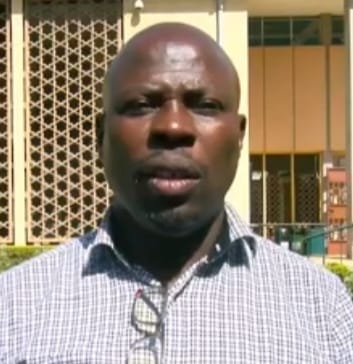A new wave of digital fraud is sweeping across Kenya, with scammers using WhatsApp to extort Kenyans by pretending to be government officials. The Kenya Forest Service (KFS) has sounded the alarm after con artists started impersonating its Chief Conservator of Forests, Alex Lemarkoko.
These criminals use fake WhatsApp profiles with their image to trick unsuspecting citizens into sending them money. KFS has warned the public not to pay for any services outside the eCitizen platform and to report suspicious contacts immediately to the police or KFS offices.

Growing Scam Network Using WhatsApp to Extort Kenyans
The Kenya Forest Service’s latest warning shows how deeply scammers have infiltrated popular messaging platforms. Fraudsters are now creating fake WhatsApp profiles with official photos and names of senior government officers to steal from Kenyans.
In the recent case, scammers used the profile photo of Chief Conservator of Forests Alex Lemarkoko to make their accounts look legitimate. They then reached out to people pretending to offer favors or services, before demanding money.
KFS confirmed that no payment should ever be made to individuals claiming to represent the agency. The only legitimate payment channel remains the government’s eCitizen platform.
Officials emphasized that these criminals target ordinary citizens who may not suspect that they are communicating with impostors. The agency urged the public to confirm any suspicious messages by contacting official offices directly.
Fake WhatsApp Accounts Target Kenyans
Screenshots shared by KFS revealed how these scammers initiate conversations through WhatsApp, using convincing profile photos and government-related language. They typically start by introducing themselves formally and then build trust before asking for “facilitation fees” or “processing payments.”
This type of scam has become more common, with many Kenyans reporting similar cases involving people pretending to be police officers, government officials, or company executives.
Cyber experts say such scams are difficult to track since WhatsApp allows easy creation of accounts using foreign or temporary numbers. Once victims send money through mobile transfers, the fraudsters quickly disappear or block them.
KFS officials reminded Kenyans that no legitimate officer would request personal payments or communicate through private messaging apps for official business.
Kenyans Urged to Stay Alert and Verify Every Message
With scammers using WhatsApp to extort Kenyans in new and clever ways, cyber awareness has never been more critical. KFS has encouraged citizens to verify any communication by visiting the agency’s website, social media pages, or official offices.
Kenyans should also avoid sending money to anyone who promises quick services, jobs, or favors through messaging platforms. Most scams begin with unsolicited messages, often claiming that the recipient has won something or qualified for a job.
Experts further warn that job-related scams remain one of the leading ways Kenyans lose money online. Fake recruiters promise well-paying positions and then demand “registration” or “processing” fees through WhatsApp.
The Communications Authority of Kenya (CA) has previously advised users to block and report suspicious numbers. It also urged mobile service providers to tighten verification procedures to prevent the use of unregistered SIM cards in such crimes.
How to Protect Yourself from WhatsApp Scammers
Kenyans can take simple steps to protect themselves from falling victim to WhatsApp scams:
- Verify all official communication – Always confirm with the official website or contact number before sending any money.
- Avoid sharing personal information – Do not send ID numbers, bank details, or passwords on messaging platforms.
- Report and block suspicious numbers – Immediately report any account pretending to be a government officer.
- Use official payment channels – Only pay for government services through eCitizen or other recognized platforms.
- Stay informed – Follow verified social media pages of public institutions for updates and warnings.
By following these precautions, Kenyans can protect themselves from manipulation and financial loss.
Conclusion
The growing number of scams using WhatsApp to extort Kenyans shows how criminals exploit trust and technology to prey on the unsuspecting. The Kenya Forest Service’s warning is a reminder that vigilance is key in the digital age.
No government officer will ever ask for payment through private chat apps. Reporting suspicious activity immediately can help authorities stop these criminals before they harm others.







































